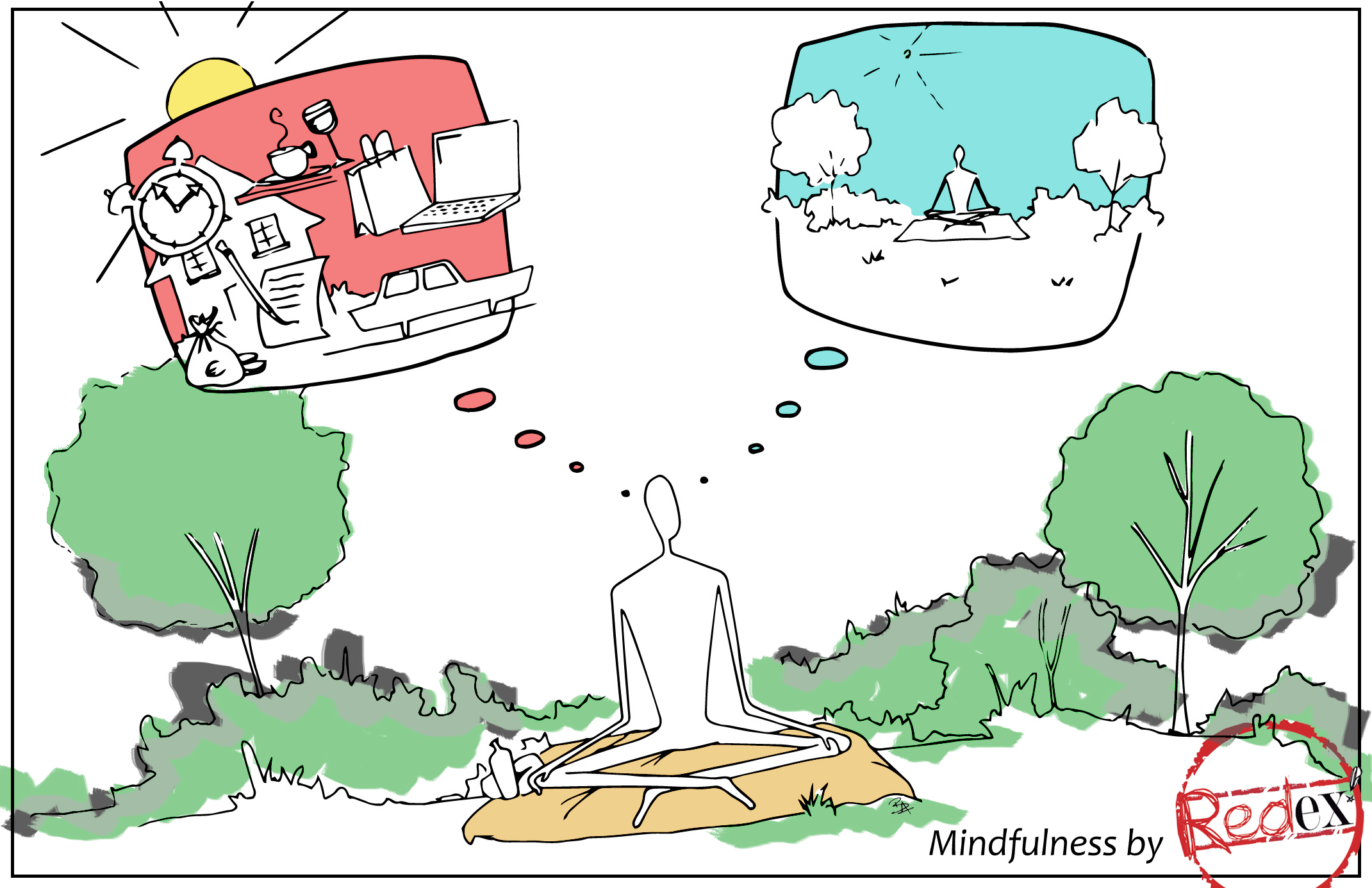
¿What is “Mindfulness” ?
“Mindfulness” or “mindful awareness” is the act of being fully aware of our thoughts, feelings, bodily sensations, and surroundings in a precise moment.
Mindfulness also involves non-judgment, which means that we pay attention to our thoughts and feelings with the attitude of an impartial observer, without believing or taking them personally.
“Mindfulness means paying attention in a particular way: on purpose, in the present moment, and without judgment.”
.Jon Kabat Zinn.
Mindfulness is related to how we manage our attentional focus. We can understand Mindfulness as a mutation of the traditional meditation concept.
The practice of Mindfulness is not tied to specific religious beliefs or life philosophies; it is simply a practice that can become a tool to improve people’s quality of life.
People who practice it usually do so for approximately half an hour a day, although shorter sessions, no more than ten minutes, are recommended to start getting accustomed to it. Learning to do Mindfulness requires some time of practice until we can meditate in almost any circumstance.
Where can we practice Mindfulness?
Initially, we should try to find a quiet place, free of noise, that allows us to feel comfortable. It is crucial to deactivate phones, alarms, and any other noises that might disturb us. We can play background music, but it’s better if it’s relaxing with repetitive cycles to prevent it from capturing our attention.
The position is simply sitting comfortably on the floor; it doesn’t necessarily have to be in the lotus position, but it should keep the back at a right angle to facilitate breathing.
What does Mindfulness bring us?
The fundamental goal of Mindfulness is to provide us with a method to learn how to manage emotions and attitudes that help us face life’s situations.
Thus, we can discover that by developing mindfulness in the present moment, we cultivate certain positive attitudes towards our mental state and emotions, ultimately gaining control over them through freedom, self-awareness, and acceptance.
Meditation also leads to improvements in memory, concentration, self-awareness, and emotional intelligence. It helps control stress and anxiety, sleep problems, and enhances concentration, thereby promoting creativity. Meditation helps calm the mind, and a calm mind has more space to generate new ideas.
Share this post
Last posts
15 de March de 2022
31 de October de 2021
24 de June de 2020


